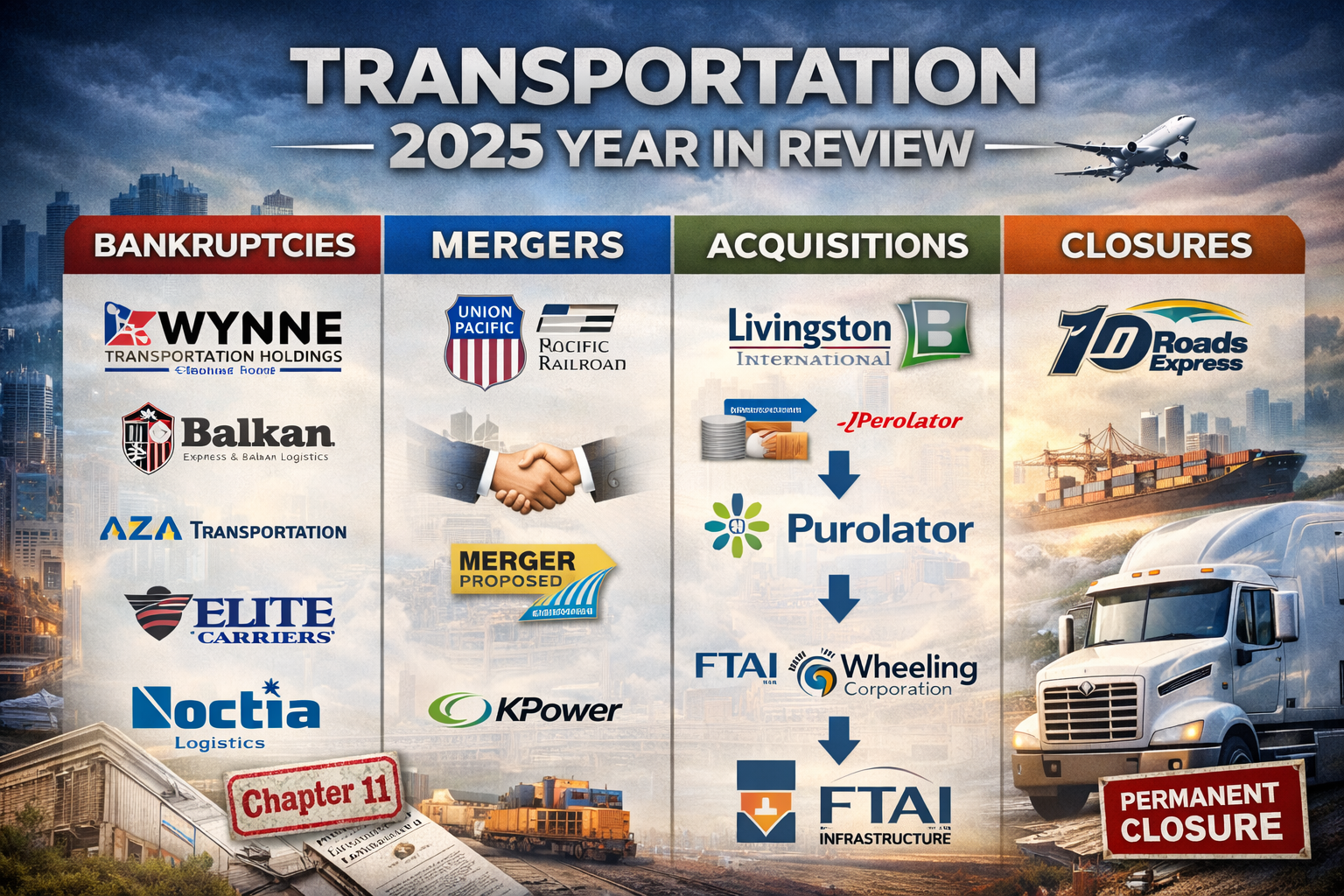7 Tax Planning Tips for Mergers & Acquisitions in Trucking
Share this Article:
Mergers and acquisitions in trucking come with complex tax exposures that can quickly derail transaction value. Early, strategic tax planning helps identify risks, preserve credits, and optimize the deal’s structure before signing on the dotted line.

Tax Planning Tips for M&As in Trucking
Each step carries potential tax liabilities and opportunities. Addressing these upfront can reduce surprises and preserve value throughout the transaction.
1. Understand the Tax Implications of Deal Structure
Asset purchases and stock purchases are taxed differently, and the choice directly affects liability and future deductions. Asset deals typically offer buyers stepped-up basis and depreciation benefits, while sellers may face higher costs. Stock deals might preserve attributes but transfer more risk. For trucking companies, this decision also impacts registrations, permits, and operating authority.
Structuring without reviewing treatment from both sides can lead to avoidable costs. A well-advised structure supports accuracy, maximizes deductions, and aligns outcomes across stakeholders. Early agreement reduces costly rework during diligence.
2. Conduct Thorough State and Local Tax (SALT) Due Diligence
State and local obligations can materially impact an acquisition, especially for companies operating across jurisdictions. Hidden items such as unpaid use tax, unfiled returns, or incorrect apportionment often surface during diligence and may reduce final value.
Buyers should review historical filings, audit results, nexus issues, and state-specific exemptions. Acquiring a company without this clarity can transfer unresolved liabilities, triggering penalties. Proactive SALT due diligence not only protects the buyer but also helps sellers prepare clean records, making the deal more attractive and less likely to be renegotiated.
3. Evaluate Sales and Use Tax Liabilities
Trucking M&As typically overlook sales and use tax issues tied to equipment, parts, and service transactions. Misapplied exemptions, uncollected charges, or sourcing errors can result in balances that carry over after closing. These problems are common in multistate fleets and companies lacking a tax department.
A detailed review of resale certificates, asset history, and vendor records can highlight risks early. Some states aggressively audit these areas during ownership changes. A multi-state sales tax review can identify exposure and give both sides a clear view of compliance status. Addressing gaps before closing allows for clearer pricing adjustments or escrow terms, reducing surprises for buyers and improving transparency across both sides of the deal.
4. Address IFTA and IRP Compliance Prior to Closing
The International Fuel Tax Agreement (IFTA) and International Registration Plan (IRP) are central to trucking operations and carry consequences if records are incomplete or inconsistent. Acquiring a carrier without checking these areas may transfer unpaid liabilities or cause revoked credentials.
Review filings, mileage data, and supporting documents for accuracy. Confirm that base jurisdictions reflect actual operations and no renewal gaps exist. These programs are often reviewed closely during ownership changes and can affect fleet readiness immediately after closing.
5. Analyze Transfer of Tax Attributes and Credits
Attributes like net operating losses (NOLs), fuel tax credits, and investment incentives can add value but don’t always transfer automatically. Their usability depends on structure, ownership change rules, and prior filing accuracy.
Buyers should determine whether these attributes are preserved under IRS Section 382 or limited by state rules. Improper planning could cause valuable credits to be lost. Sellers should document what is available, while buyers must confirm that these benefits support future strategy.
6. Consider Multistate Nexus and Expansion Risk
When acquiring a company operating across state lines, a multistate nexus creates added risk. Past activity may have triggered obligations in states where no filings exist. This can lead to assessments, interest, and penalties post-close.
A nexus study consulting engagement helps identify where exposure exists, even in states where returns were never filed. Nexus analysis should go beyond current filing states to include delivery patterns, customer locations, and employee travel. Buyers planning future growth must also evaluate how the combined operations might trigger new filings or audits. Addressing nexus exposure up front helps avoid surprises and positions the business for cleaner expansion after the deal.
7. Plan for Post-Transaction Integration
After closing, the tax impact doesn’t stop. Integrating two trucking operations involves aligning systems, updating permits, consolidating registrations, and adapting to new filing requirements. Delays in addressing these tasks can interrupt fleet operations, trigger late filings, or jeopardize fuel and mileage tax accounts.
Develop a tax integration plan that includes timelines for updating IFTA and IRP accounts, re-registering vehicles where required, and consolidating tax reporting processes. Assign responsibilities early to avoid confusion and compliance gaps. Clear coordination between operations, legal, and tax teams helps maintain continuity, minimize disruptions, and protect the value created during the transaction.
Common Pitfalls in Trucking M&A Tax Planning
Overlooking tax risks during a transaction can create long-term consequences. Many M&As move quickly, and without a focused tax review, key exposures are missed or underestimated. These gaps often surface after closing, leaving buyers with unexpected liabilities or operational delays.
Common pitfalls include:
- Selecting a deal structure without evaluating tax consequences
- Incomplete IFTA and IRP compliance reviews
- Unexamined sales and use tax exposure on equipment or parts
- Assuming tax credits or NOLs will transfer without limitation
- Missing multistate nexus risks tied to fleet routes or personnel
- Delayed planning for post-close tax filings and permits
Each of these can reduce deal value or disrupt operations if not addressed early.
How Transportation Tax Consulting Supports M&A Success
Transportation Tax Consulting brings focused expertise to trucking M&As, helping companies minimize tax impact and protect transaction value. Our team performs targeted reviews of indirect liabilities, fleet-related obligations, and multistate activity—often missed in traditional diligence.
We assist in structuring deals for favorable tax outcomes, uncovering hidden liabilities, and validating the usability of credits and exemptions. Our
merger and acquisition tax services are built specifically for the transportation industry, combining transactional insight with deep regulatory knowledge. With decades of transportation-focused experience, we know where problems typically arise and how to resolve them before closing.
Our services assist buyers and sellers, improving clarity, reducing surprises, and streamlining integration across complex operations.

Schedule a consultation today to start your transaction with confidence and uncover the tax savings opportunities others miss.
Share with Us:




